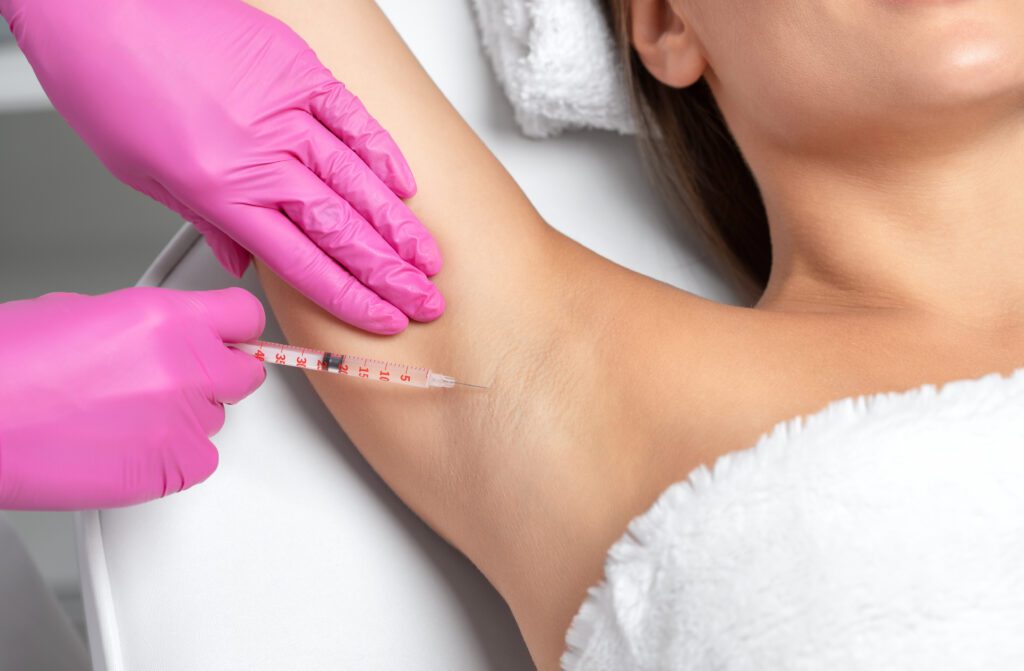
TREATMENT
Hyperhidrosis (excessive sweating)
Hyperhidrosis injections are a form of treatment for excessive sweating. It involves injecting a solution that contains certain chemicals into the affected areas of the skin, which temporarily block the nerves that control sweat production. This helps to reduce the amount of sweating in the treated area.

What are hyperhidrosis injections?
Hyperhidrosis injections are a form of treatment for excessive sweating. It involves injecting a solution that contains certain chemicals into the affected areas of the skin, which temporarily block the nerves that control sweat production. This helps to reduce the amount of sweating in the treated area.
Are there any side effects of hyperhidrosis injections?
Yes, there are some possible side effects of hyperhidrosis injections, such as temporary redness and swelling of the treated area, skin discoloration, and infection. In rare cases, nerve damage can occur, which can cause numbness or tingling in the area.
Are there any risks associated with hyperhidrosis injections?
: Yes, there are some risks associated with hyperhidrosis injections, such as infection, nerve damage, and skin discoloration. Additionally, some people may experience an allergic reaction to the injection solution. Therefore, it is important to discuss any potential risks with your doctor before receiving a hyperhidrosis injection.
How long do the effects of hyperhidrosis injections last?
The effects of hyperhidrosis injections typically last between four and six months. In some cases, the effects can last up to a year.
How often should hyperhidrosis injections be administered?
It is recommended that hyperhidrosis injections be administered every four to six months. However, this may vary depending on the individual’s response to the treatment.
Does insurance cover hyperhidrosis injections?
Most insurance plans do not cover hyperhidrosis injections, as they are considered a cosmetic treatment. However, some plans may provide partial coverage for the injections. It is best to check with your insurance provider to find out if your plan covers any part of the cost.